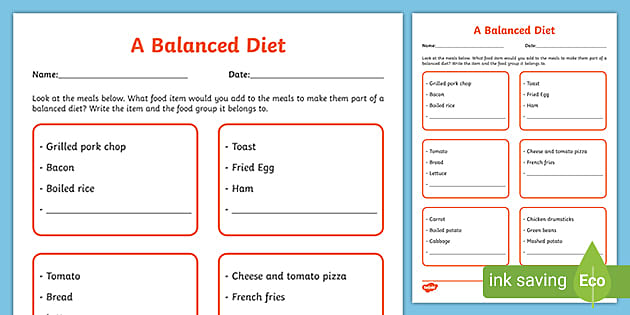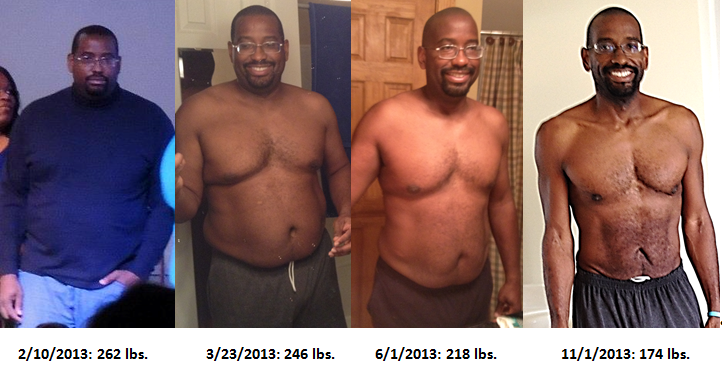
You can prevent high blood pressure by improving your diet and getting more exercise. While men are more likely to develop high blood pressure before age 55, women are more likely to develop it after age 55. Smoking, excessive sodium intake and high levels of potassium can all increase your chances of developing high blood pressure. If you can avoid these unhealthy habits, you will be much healthier over the long term.
There are simple ways to improve your overall health and reduce hypertension. The first thing you should do is to eliminate salt from the diet. Too much salt can lead to high blood pressure. It increases the volume and fluid levels in your arteries. You don't have to cut out salt entirely from your diet.

A simple way of reducing high blood pressure is to lose weight. You should lose a few extra pounds if you are overweight. If you're just a little over normal weight, try not to gain any more. It is possible to lose 10 lbs and prevent hypertension. It's essential to keep your weight within a healthy range, as being obese or overweight increases the risk for high blood pressure.
Adding a low-sodium diet can help you control your blood pressure. For blood pressure control, it is vital to eat lots of fruits and veggies. Balanced diets with low levels of sugar, saturated fat and other additives are ideal. Studies have shown that a low-sodium diet can reduce blood pressure. Limiting your alcohol intake is a good idea. A single alcoholic drink per week is enough for men. Women should have two drinks per day to reduce their blood pressure.
Hypertension can not be prevented. However, hypertension can be managed. It is important to eat a healthy, low-sodium diet. Regular exercise will strengthen your heart health and reduce the stress on your blood vessels. Also, losing weight can lower your blood pressure. This is because it's important that you maintain a healthy weight. You should reduce your salt intake if you are obese.

It's possible to develop high bloodpressure without any medical intervention. However, it's vital to check your blood pressure on a regular basis. If you have a high-pressure reading, you should seek treatment immediately. You should consult your physician if you suspect that you may have hypertension. The American Heart Association defines high-blood-pressure as 120/80. A healthy-pressure reading is the best way to prevent hypertension. Regular checkups will help you identify the causes and treatment options for hypertension.
FAQ
How often should I exercise each week?
It all depends on your time and the type of exercise that you enjoy. A general guideline would be moderate-intensity aerobic exercise 3 - 5 days a week. It's important that you don't overdo it. You will get the maximum benefits from your workouts if you do not exercise consistently.
Which exercises are best suited for me?
It all depends on your fitness goals. Some people are more focused on endurance activities such as running, cycling and swimming. Others love lifting weights or using resistance bars. There are many types and styles of exercise available today. You can choose the one that best suits you.
What does milk do?
Consider what other uses you might have for your milk next time that you buy it. You might also find it helpful to stop drinking coffee.
It has been proven that milk is beneficial for both children and adults. Milk contains nutrients like vitamin D. Calcium, potassium, phosphorous, magnesium, and other essential nutrients.
It aids in digestion, strengthens bones, and promotes weight loss. Adults who consume dairy products tend to have fewer illnesses and better immune systems.
The lactose in milk is also high, so people with digestive problems can enjoy the benefits of milk without experiencing stomach discomfort.
Instead of drinking soda or juice, drink more milk. Milk contains more calcium and vitamin D, which can strengthen your bones and teeth.
If you don’t like milk's taste, you can make your yogurt with plain low fat milk. Yogurt is a great alternative to milk since it is lower in calories and higher in protein.
Yogurt also includes probiotics. These help in digestion and improve immunity.
Warm milk can help you sleep better if you have trouble falling asleep. Warm milk relaxes muscles, increases serotonin levels and helps you get a good night of sleep.
How many calories should I eat daily?
This can vary from person to person. An average person needs 2000-2500 calories per day. It's important to assess your life style, gender, age and height in order to determine how much calories you need.
Do Men Need A Gym Membership?
For men, a membership to a gym is not required. However, your money will be more valuable if you join a gym.
Many gyms offer free trial memberships so you can try the facilities out before paying for anything.
You can use the gym whenever you like, and it won't cost anything. You can cancel your membership as soon as you decide whether you love or hate it.
Statistics
- By John Thompson Take a whopping 38% off a set of PowerBlock Pros. (menshealth.com)
- An estimated calorie range for moderately active adult males falls between 2,200 to 2,800 calories per day, depending on age. (eatright.org)
- According to the American Academy of Dermatology (AAD), men over 50 are at a heightened risk of developing it. (healthline.com)
- Cardmembers earn 5% Back at Amazon.com with a Prime Credit Card. (amazon.com)
- Get free shipping and 25% off today. (healthline.com)
External Links
How To
What nutrients does a man require daily?
Men need healthy growth and development. The body requires vitamins, minerals, proteins, carbohydrates, fats, water, fiber, and other essential elements.
Males also require specific nutrients at certain times of the day. You can see that your body uses energy to make hormones. When you awake, protein is used by your body to build muscles or repair damaged tissue.
Your body will burn fat at night and store the extra energy as a form of glycogen. Your body still requires sufficient nutrients and calories even though it needs less calories. If you feel hungry, you can have a snack in the evening.
When you work out, you need adequate levels of carbs and protein to fuel your muscles. If you train hard, you may experience muscle soreness after exercising.
To prevent this, you must consume carbs and protein within 2 hours of training. Your body will breakdown stored glycogen and provide you with glucose for energy.
After your workouts, you should eat protein immediately. This will prevent muscle tissue from being damaged while you sleep.
During periods of intense physical activity, your body produces lactic acid. The body produces lactic acid when there is too much activity. This can cause fatigue. Avoid this by eating foods rich in carbohydrates such as fruits or vegetables.
Carbohydrates give your body the energy it needs to recover from strenuous exercise.
A healthy diet should include lean meats such as fish, eggs and milk, cheese, yogurts, beans, seeds, nuts, and beans.
All of these foods contain high quality protein. Protein aids in muscle growth and repair of damaged tissues. Protein provides the amino acid your body needs for testosterone and sexhormone production.
You also need enough dietary fats to maintain good skin, hair, nails, and joints. Healthy men require between 20% and 35% of total caloric intake from fat.
Fat helps keep your heart strong and protects against cancer. It helps keep your brain working properly.
Vegetable oils such as sunflower oil and soybean oil can provide most of your fat needs.
These oils are high-in monounsaturated, unsaturated fatty acid (MUFAs). MUFAs reduce cholesterol and inflammation. They protect your cells from damage by free radicals.
Saturated fats (SFAs) are found mostly in animal products like meat, dairy products, and butter. SFAs increase LDL ("bad") cholesterol, and increase triglycerides. They promote weight gain as well as belly fat.
Polyunsaturated oil (PUFAs), which are plant-based, can be found in vegetable oils, nuts seeds, grains, and other plant-based products. PUFAs improve cardiovascular function and decrease inflammation. They also help control blood sugar and cholesterol.
Low HDL ("good") cholesterol is a common cause of erectile dysfunction in men. Consuming high amounts of saturated fats can increase bad cholesterol and lower good cholesterol.
Men who eat lots of red meat or pork can develop prostate problems. This is because these foods contain high amounts of nitrates. When cooked at high temperatures, nitrates can be converted to nitrosamines. These compounds cause cancer.
Most processed meats contain nitrites and other harmful chemicals. Avoid them.
The American Heart Association suggests that no more than two servings per week of red meat should be consumed. Instead, choose poultry or fish, beans, tofu and whole grain bread.